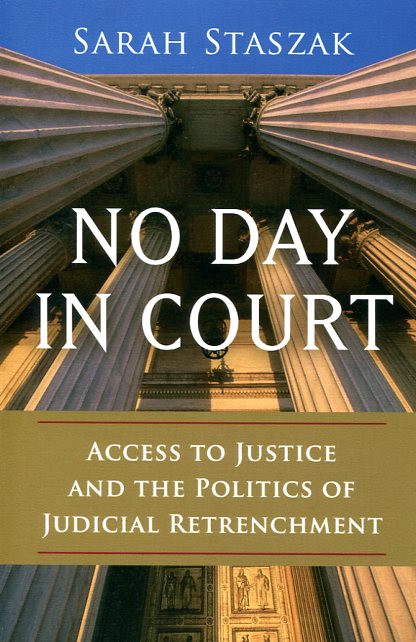Privatizing justice
arbitration and the decline of public governance in the U.S.
- ISBN: 9780197771730
- Editorial: Oxford University Press
- Fecha de la edición: 2024
- Lugar de la edición: Oxford. Reino Unido
- Encuadernación: Rústica
- Medidas: 24 cm
- Nº Pág.: 304
- Idiomas: Inglés

One of the primary goals of the 1970s-era conservative legal movement was to undo New Deal policies that favored labor at the expense of capital. One of the movement's most effective strategies turned out to be advancing bipartisan legislation on arbitration and convincing the courts that settling disputes that way was preferable to litigation. Today, most consumers and employees today are bound by arbitration agreements, in which they are required to submit all future grievances to a private, binding system of arbitration and forfeit access to the legal system. Arbitration as originally conceived well over a century ago, however, stands in stark contrast to the arbitration in practice today. What changed is that Congress, the Supreme Court, and the private sector began to promote its use in the late twentieth century as a means of protecting corporate and other powerful institutional defendants from the costs of litigation and government regulation itself. How did arbitration shift from providing a low cost, less adversarial, and more efficient way of handling disputes between entities of equal bargaining power to a private, non-reviewable, compulsory forum for resolving disputes between individuals and corporations, often on unilateral terms? By examining the broader institutional, political, and legal dynamics that shaped and enabled these processes of change over the past 150 years, Privatizing Justice examines how this transformation came about. The product of a broad range of actors and institutions interacting with each other--Congress, presidents, the courts, the administrative state, interest groups, and the business community-the system that emerged has not only transformed the American state in profound ways but exacerbated economic inequality and eroded democracy.
PART I: Arbitration's Institutional Orders
Chapter 2 Collective Bargaining and Labor's Industrial Democracy
Chapter 3 Disjointed Origins: The Rise of Commercial and Securities Arbitration
PART II: The First Wave: The Bipartisan Origins of Arbitration's Conversion
Chapter 4 Employment Rights as Civil Rights
Chapter 5 The Consumer Rights Movement
PART III: The Second Wave: The Partisan Politics of Modern Arbitration
Chapter 6 Privatizing the Workplace in the New Millennium
Chapter 7 Beware the Fine Print ("By opening and using this product, you agree to be bound by mandatory arbitration")
Chapter Conclusion







